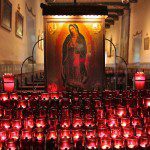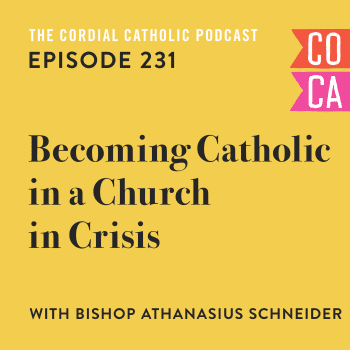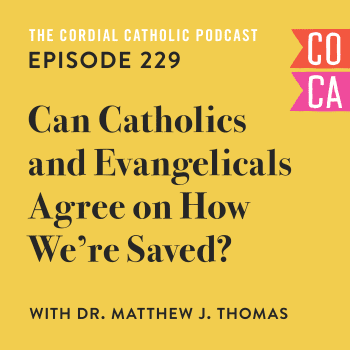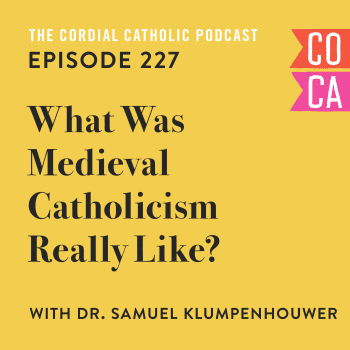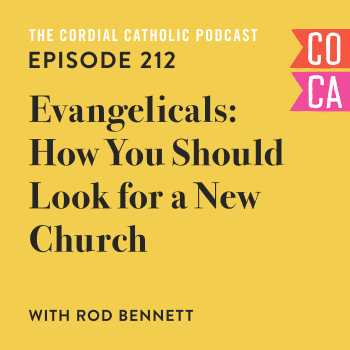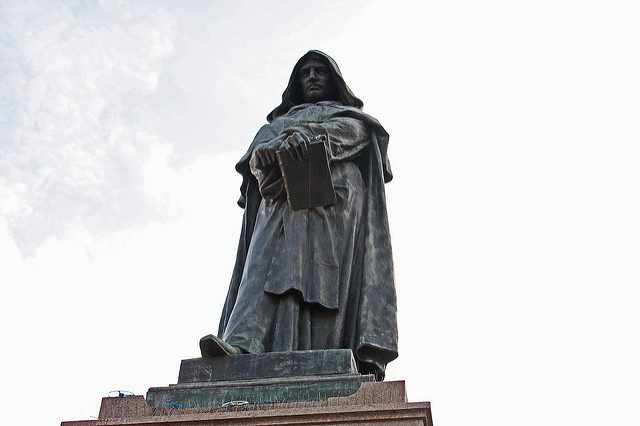
When Martin Luther nailed his ninety-five theses to the door of the Wittenberg Castle church he was almost immediately rebuked by his Catholic interlocutors.
It was St. Francis de Sales, Bishop of Geneva, who wrote authoritatively in response to Luther’s anti-Church movement—a text which remains one of my favourite treaties on the Catholic faith.
Calling Luther’s re-interpretations of ancient Catholic doctrines a “novelty” St. Francis took Luther to task for inventing new interpretations of old heresies.
What Luther was doing, charged St. Francis, was simply rehashing old ideas that the Church had already flatly and authoritatively rejected.
Luther was a heretic, said St. Francis, because he was single-handedly claiming to know better than 1,500 years of consistent Church teaching.
No matter your stance on Martin Luther and the movement which codified into the Protestant Reformation history shows that its effects on Christian unity have been nothing short of ruinous. Devastating.
And whether or not you think Luther and his predecessors were brilliant or mad it’s important to note the power, for good or ill, of a “novel” idea.
These days, in an ever fragmented Christian landscape, the ability of one of these novel ideas to bubble up to the surface of popular belief is nothing short of alarming.
These heresies, authoritatively condemned by 1,500 plus years of Church teaching, can catch fire and spread at a rate unimagined by the Reformers.
And, alarmingly, we tend to repeat and spread these ancient misbeliefs without even knowing it.
In my journey out of the Evangelical Church and into Catholicism an honest study of Church history did a great deal to help my understanding of the development of Christianity, and where my faith came from. I learned, along the way, that many of the tenets of my faith, things that I took for granted were believed universally, were actually long lost heresies.
Aspects of so-called Christian belief that had been unequivocally condemned by the Church within the first 1,500 years of its history.
These discoveries made me nervous.
After all, what made me think that I knew better than the Church who carefully and prayerfully laid down proper teaching for a millennium and a half. And what made me think they got it wrong?
It’s Paul, writing to Timothy, who calls the Church “the bulwark and pillar of Truth.”
It’s Jesus who says He’ll establish a Church with nothing will overcome.
And so I struggled with these two teachings.
If Jesus truly founded and Church which was the guardian of Truth and couldn’t be overcome then why did my Evangelical leaders—whom I trusted for faith formation—claim that the Church lost its way and began to add “Catholic” stuff sometime in its early history?
And, I wrestled, if the Church truly did lose its way and a right and proper understanding of salvation and the Gospel wasn’t rediscovered until Martin Luther came along what about all those Christians who were mislead in the meantime?
And how come the Protestant understanding of the Gospel fragmented so quickly into Baptism, Lutheran, and Reformed camps so quickly? All with distinctive teachings and interpretations.
I struggled, because the more I dipped my toe into the stream of Church history the more I found myself thick in the mud of ancient heresy.
Take, for example, the teaching of Mary as Mother of God.
As an Evangelical I would’ve balked at a term which, on the face of it, seems to elevate the Virgin Mary to unseemly heights. But this teaching, authoritatively affirmed in the 4th century, was affirmed alongside the doctrine which outlined Jesus’ divine and human nature.
It was, in fact, to explain the nature of Christ that Mary received such a lofty title.
But I knew better than Church history, right?
I was beginning to think otherwise and what I came to realize, and I think this is true, is that our loose grasp on Church history dooms us to repeat the mistakes of the past.
Our apparent amnesiac understanding of where we came from informs our blundering around in the dark as we head forward.
And it’s making us into heretics.
What we ought to do instead is this: If and when—and I would charge it’s more likely “if” than “when”—we encounter a belief that’s at odds with the historical Church we need to ask ourselves some simple, honest questions.
What makes me think I’m smarter than the ancient Church?
What makes me think I know more than Christians did for 1,500 years?
And even if we don’t recognize the authoritative claims of the Catholic Church what makes us think that they didn’t at least get it right?
(That the Holy Spirit may have been working there rather than laying dormant for a millennium and a half until the Reformation came along.)
If we take seriously the kind of unity that Jesus charged us with—that we may be one as He and God the Father are one—then we need to, in the least, seriously consider what we believe.
And if we are put at odds with what the ancient Church believed for fifteen hundred years it might be in the best interest of the entire Body of Christ if we at least ask ourselves why.

